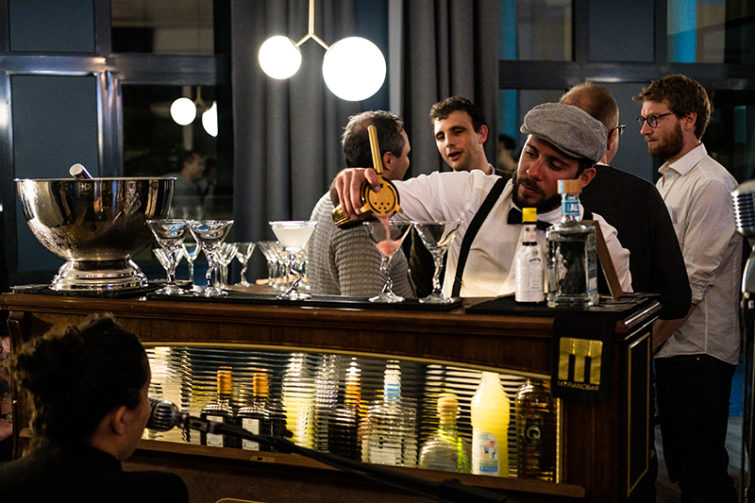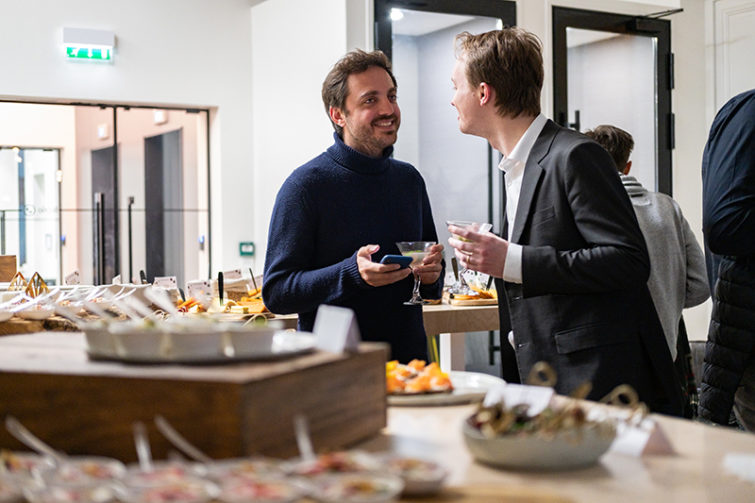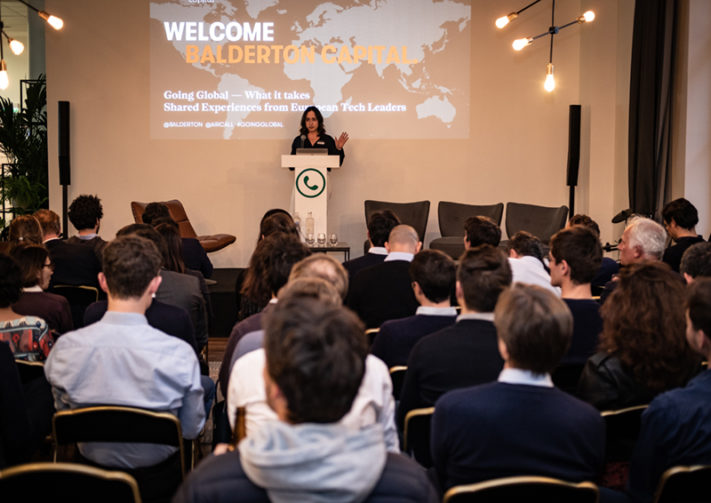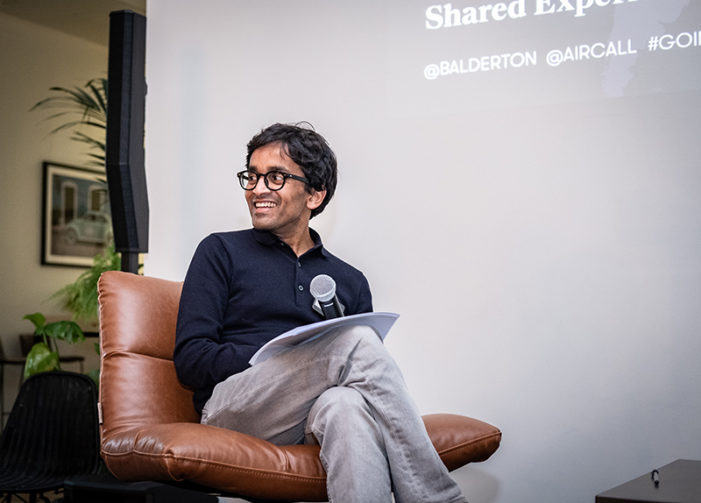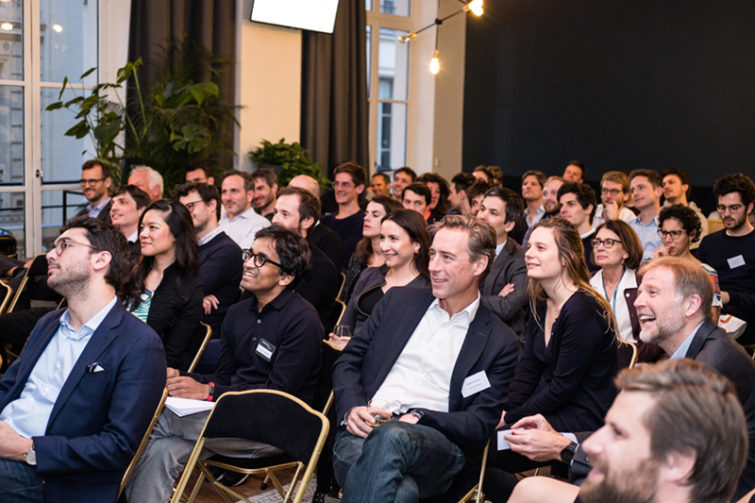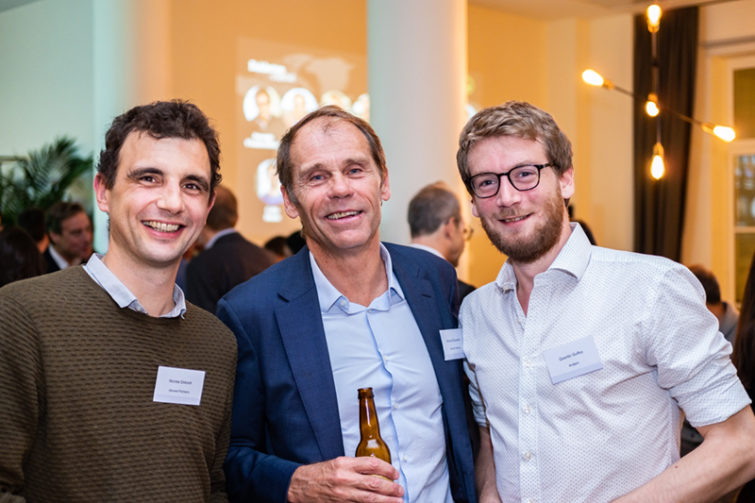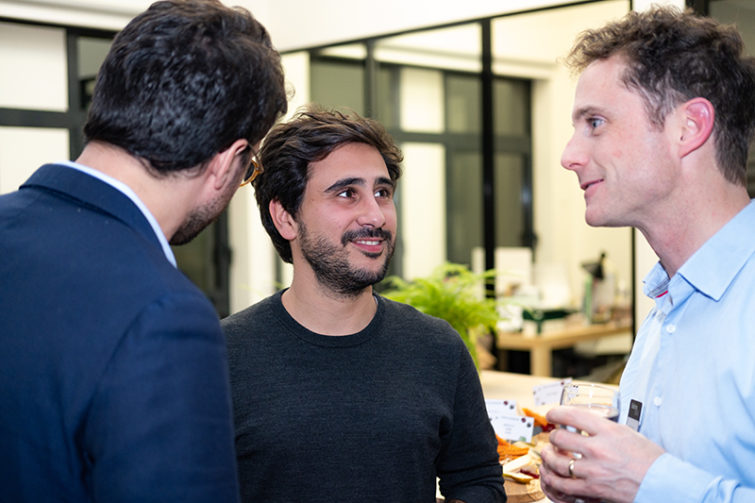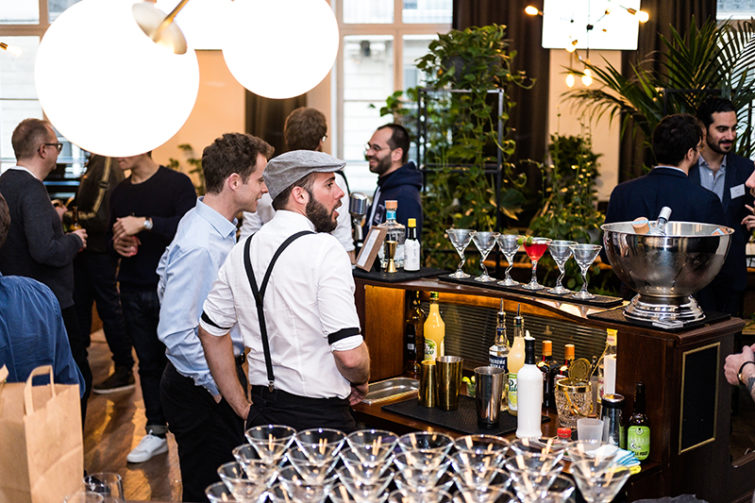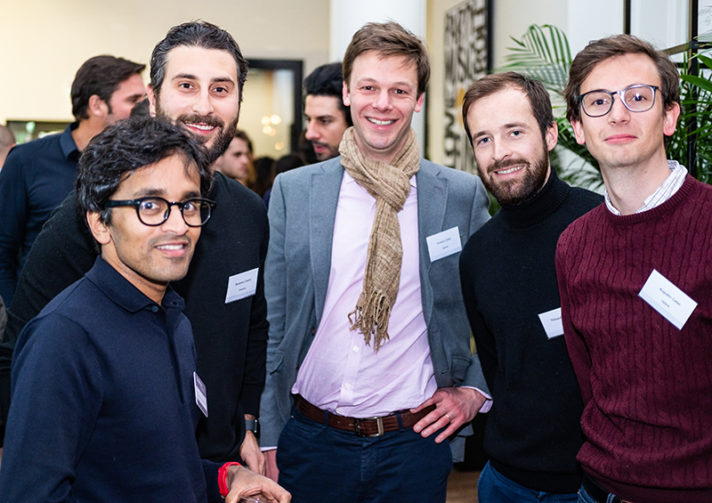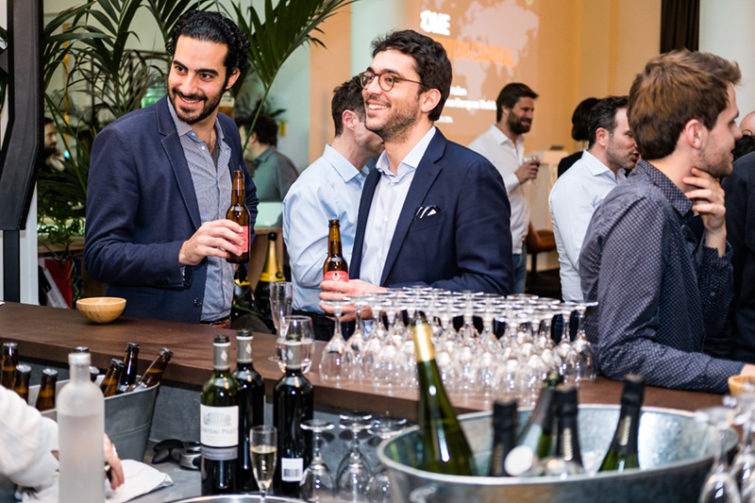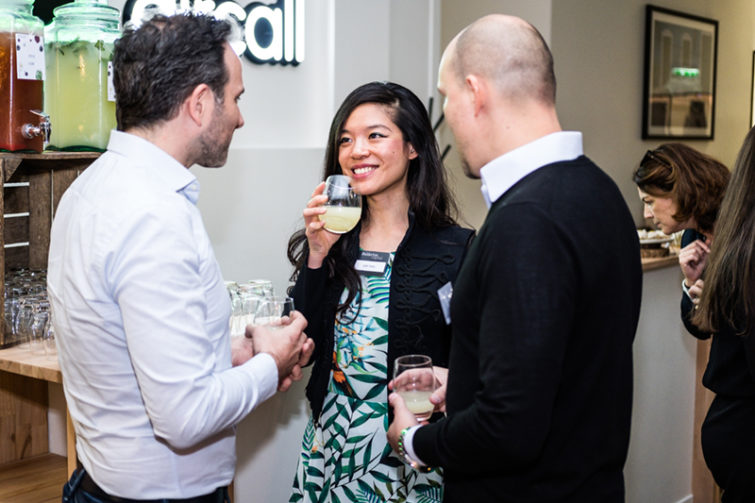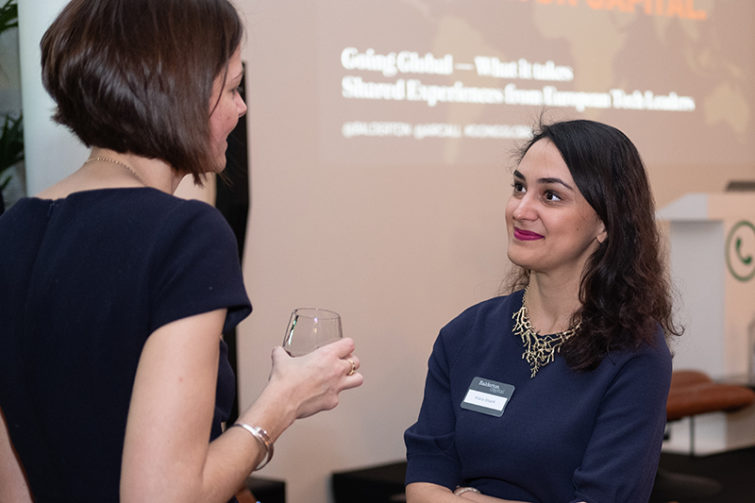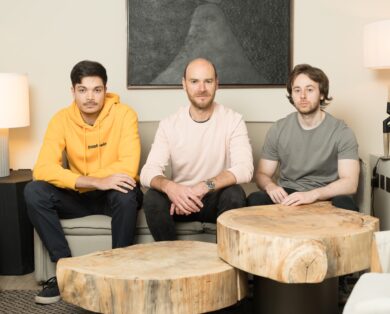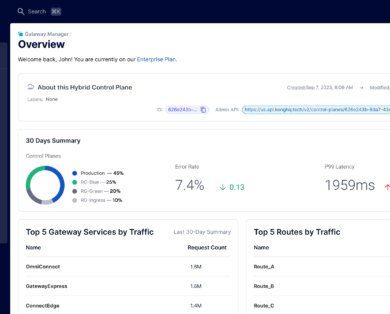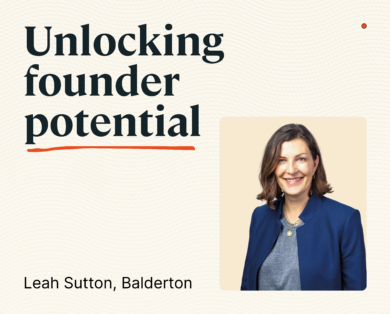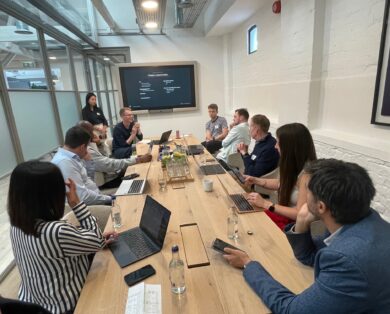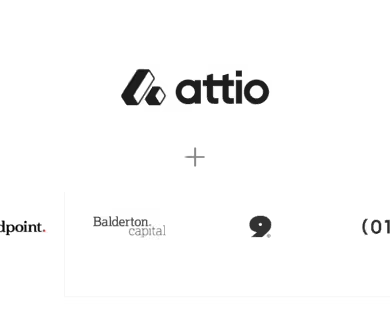- Portfolio News
- 17 December, 2024

Going global – what it takes – shared experiences from European tech leaders
“Entrepreneurs who really want to go all the way, should think about going global from day one.” – Bernard Liautaud
We recently gathered some of Europe’s leading founders, investors and tech execs at Aircall‘s Paris HQ, to discuss why ambitious startups need to explore global opportunities from inception if they are to become globally successful. Speaking alongside our own partners, Bernard and Suranga, who both founded global tech companies, we invited three incredible panellists from our own portfolio:
- Poppy Gustafsson (Co-CEO of Darktrace)
- Maximilian Bittner (CEO of Vestiaire Collective)
- Laurent Bride (CTO & COO of Talend)
All three have themselves scaled global billion dollar tech companies. The evening’s lessons:
- Think global from day one
- Understand and adapt to local culture
- Don’t over-adapt your business model
- Hire people early to support growth
- Beware of conflicts between HQ and local offices
- Celebrate cultural differences!
Here are a few highlights from the evening’s discussions:
1. “Internationalisation is far too often a second thought.”
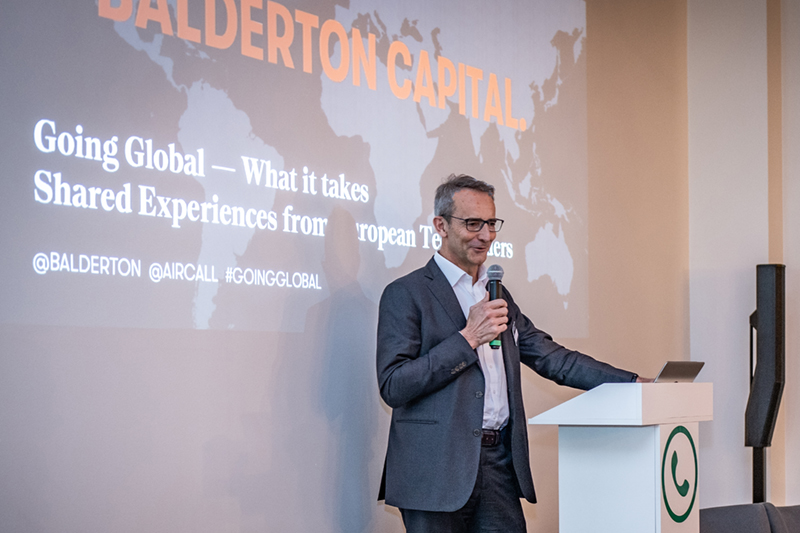
Balderton’s Bernard Liautaud delivers the keynote speech on why it’s critical for startups to think about internationalising as early as possible. “The world is getting smaller. The internet and social media mean products and services can be adopted by users all over the world extremely rapidly, regardless of where they come from.” said Bernard. The upside is that European products can find scale in America or Asia very quickly. The downside is that products can be replicated almost as fast. Going global enables a company to have first mover advantage in multiple countries. There are other advantages too. For example, it forces companies to compare themselves to the best products out there, not just those in their home market – which can create a false sense of security. It also enhances the value of the company, and can make it attractive to top talent. There is a tendency among European companies to take a step-by-step approach to scaling overseas, focusing exclusively on Europe and expanding one country at a time. That’s often a mistake, as conquering Europe country-by-country can be hard and slow. Each country has its own culture, language and regulation. However, despite that, it’s still viewed as easier to expand to a neighbouring European country, because it’s geographically closer, the competition is easier to beat and the risk of failure is considered lower. “While those are valid reasons, they lead entrepreneurs to draw the wrong conclusions.“ said Bernard. In reality, there is nothing to prevent a company born in Paris or Lille expanding straight to the US – skipping other European countries altogether from the outset. However, we should not underestimate the challenges. “Customers in America are extremely demanding, expectations are high and competition is everywhere. But, there are a lot of positives too. Customers are often more ready to buy from startups, they make faster decisions, and you can build a brand much faster as all the influencers are there. Don’t be afraid to go to the US and think about going there early.”
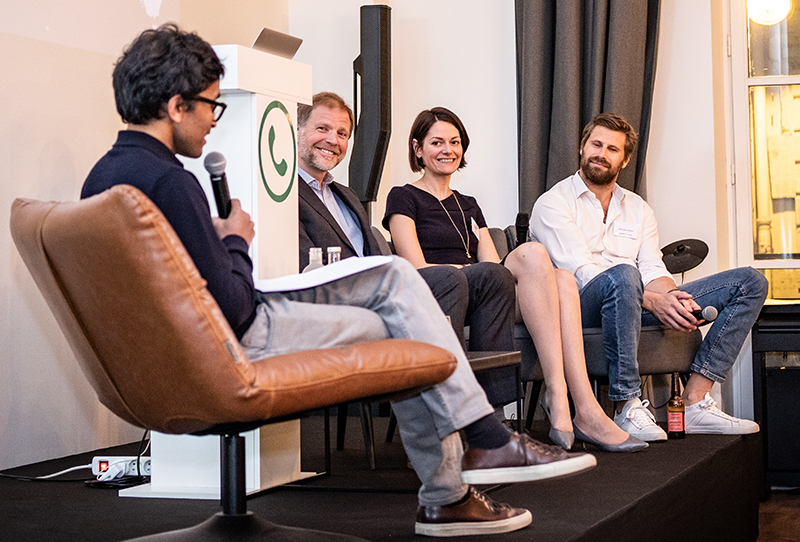
Suranga introduces Laurent, Poppy and Maximilian, founders of global technology companies valued at over a billion dollars.
2. “Understand local culture and adjust your message for different markets.”
Obviously, there is no ‘one-size-fits-all’ when it comes to global expansion. Poppy described a recent conversation with a UK Embassy official in Tokyo: “They said: ‘We’re in Japan – why would anyone want to hack us? It’s so safe here in Tokyo that when I queue to order a coffee, I save my table by leaving my laptop there.’ The mindset is that it’s a completely safe place.” Founders need to think about the local ecosystem and the culture of the country they’re selling into. Not everyone has the same starting point when it comes to your product or service proposition. You need to adapt the way you demonstrate the value proposition. Laurent Bride, CTO & COO of Talend, adds that it’s not just about what you say, but also, how you act. He highlights a time his team flew to Asia and worked through the night to fix a customer issue. “From a cultural standpoint, it was what was expected of us… Once it was fixed, the customer was so happy we became best friends for the rest of the night. In the years that followed, they kept sending us chocolates for Christmas.”
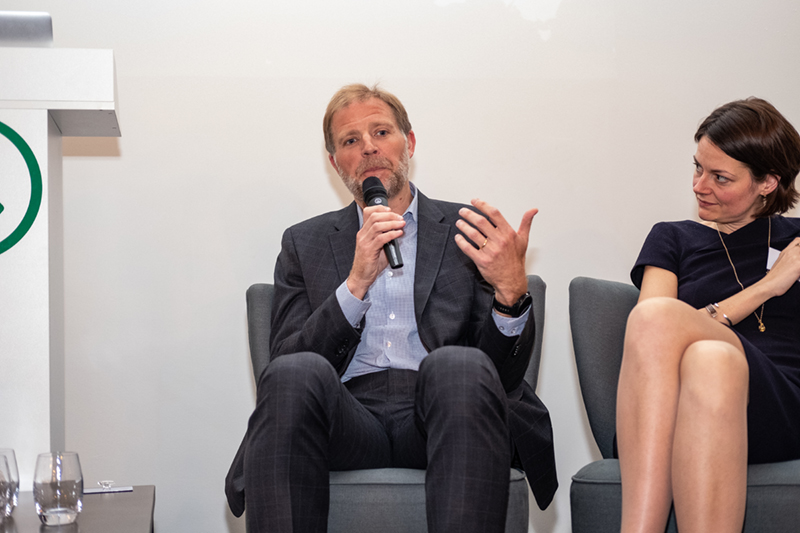
Laurent Bride explains why understanding local culture and adapting both your messaging and your behaviour is critical to succeeding at a global level
3. “It’s unrealistic to adapt your business model for every single country.”
Poppy cautioned against trying to adapt your business model for individual markets, noting when founders are growing a company very fast, their business model needs to be scalable and replicable. “What you cannot be saying is ‘Now we’re going to roll out the French way of selling this product’ – because you will just not get to the scale you need quick enough.”“There’s no way you can adapt your business model for every single country, it’s just not a practical or sensible way to scale. So whilst we talk about the fact you need to be mindful of cultural differences, you do also need to push back and challenge at times.”
4. “Hiring people who can support international growth really early on is crucial”
Ambitious UK-born companies have to trade beyond their borders very quickly, noted Poppy. “Hiring people who can support growth early on is really important.”“One of the first things we did was hire a head of sales in the UK, US and Asia – in very first six months of incorporating the company. While the UK took off first, it meant the US and Asian heads of sales could see the whole journey we were going on, understand our sales model and the way we were trying to solve problems and scale.” You will also need access to a flow of tech talent, so companies should think hard about where they open their international offices, added Laurent. “You need to think about where are you going to find the engineers, the best mathematicians or AI guys. So depending on what you do, you really need to think that through.”
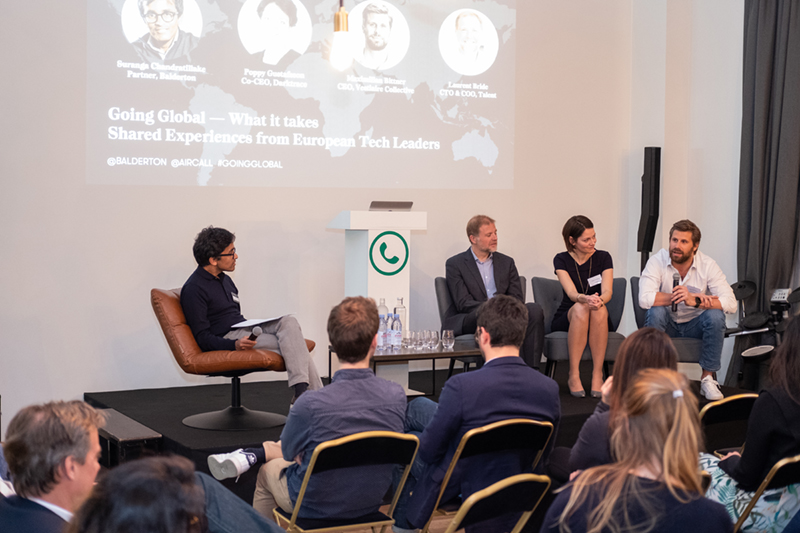
Max discusses why it’s so important to maintain good relationships between local offices and HQ.
5. “A cultural war between local and head office can kill your business.”
It’s not as simple as just hiring great people in each market. You also have to ensure a good relationship between local offices and HQ. “With a B2C business you can face conflicts from the moment you arrive in a new market – and it’s often between local and head office,” Maximilian Bittner, CEO of Vestiaire Collective. “The local team feel they’re closer to the customer, and that people at HQ don’t understand what it’s like on the ground. The people inhead office will tell you the local offices only think short-term, and ultimately don’t know what they’re doing.”“As a CEO, you’re caught in the middle. You feel like a shrink.” Maximilian says he’s spent years figuring out how to find an organisational structure which minimises interpersonal conflicts. “I always try to reiterate there’s a role for different people in different parts of the organisation at different times. There’s a time where you need to be on the ground, where you need to move fast, see what your competitors are doing and react – and there are times, when you need to slow down and think about the big-picture projects which won’t be localised, because by definition in tech, you want things to be scalable.”“You mustn’t underestimate the challenge… because the cultural war will absolutely kill your business.”
6. “Having a ‘Global’ culture means celebrating differences”
Suranga pointed out – “Something that’s often said about companies like Google, Facebook and Yahoo is that they don’t go global from a team perspective for a long time, but when they do, they really just recreate their HQ – if you go into Google’s offices in London, it’s like a mini-California.” But Poppy says when it comes to making your team-members, who may be scattered around the world, feel part of the same organisation, it boils down to celebrating people both for their differences and similarities wherever they are. “Take our team in Singapore, they feel part of Darktrace globally, but also of Darktrace Singapore. They have their own unique culture and team spirit, but it’s supported by the Darktrace team.”“The whole office may not celebrate Chinese new year for example, but we’ll share the Singapore team’s celebration with everyone…. We celebrate their celebrations.” You can find out more by reading Caye’s Medium post on the event here.
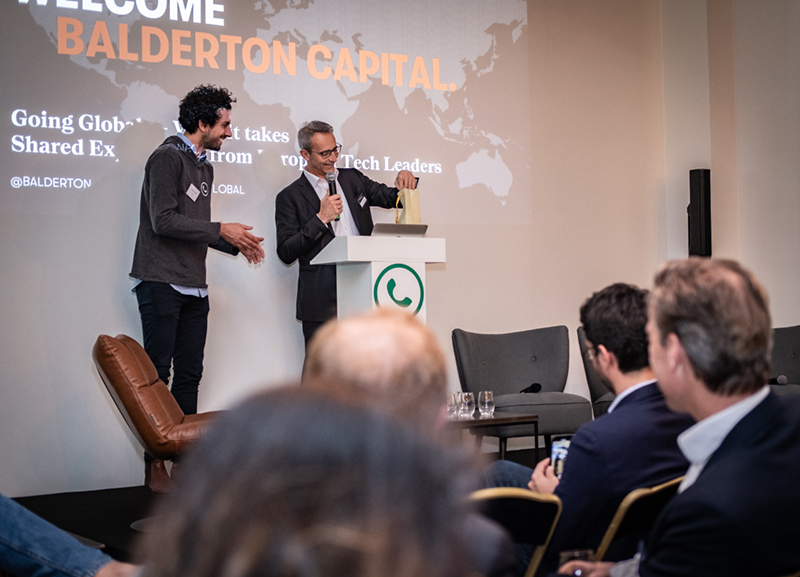
Jonathan Anguelov, co-founder and COO of Aircall is presented with a bottle of wine for beating Bernard in a bet.
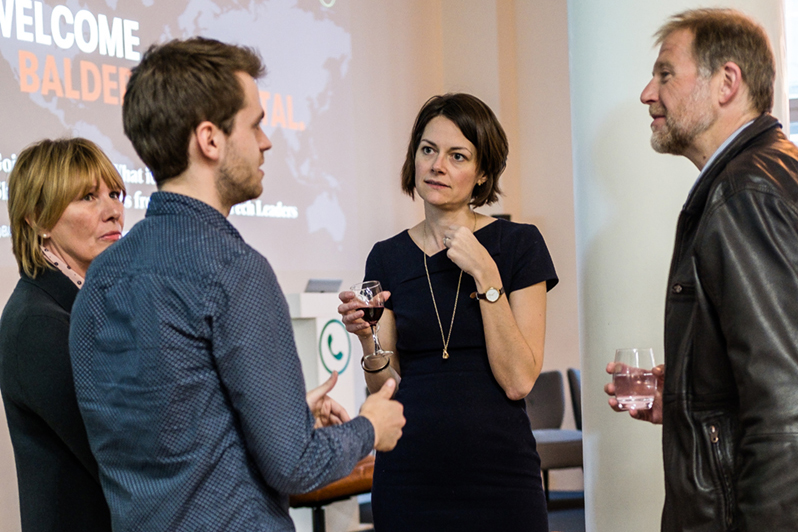
Darktrace Co-CEO, Poppy Gustafsson and Laurent Bride, CTO & COO of Talend talk to Balderton’s Alice Lankester and Maxime Le Dantec.
